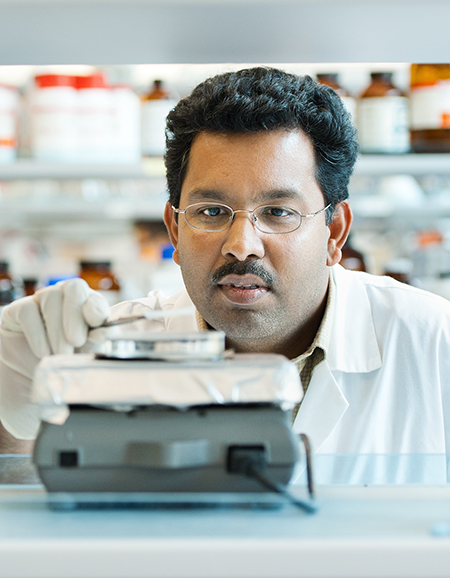A Faculty of Medicine researcher is developing a universal antidote to the many varieties of heparin, the blood thinner used in major surgeries and treatment of heart disease.
Patients often need an antidote to heparin to prevent serious bleeding, especially during surgery. But there are about a dozen approved heparin products on the market, and none of the reversal drugs work with all varieties of heparins. In addition, two of the most commonly prescribed varieties of heparin have no medically approved antidote.
Jayachandran Kizhakkedathu, an Associate Professor in the Department of Pathology,sought to develop a synthetic antidote that would work with all heparins used in clinics. He and his team have successfully tested their compound on animal models, as they report in the Oct. 29 issue of Science Translational Medicine.
A synthetic drug offers consistency in health effects and performance, and avoids possible immunological reactions sometimes associated with biological antidotes, Dr. Kizhakkedathu says. Existing antidotes, he says, are relatively toxic, with the toxicity varying from patient to patient.
“Heparin is the second most prescribed drug after insulin,” said Kizhakkedathu, a member of the Centre for Blood Research and an associate member of the Department of Chemistry, and a Michael Smith Foundation Health Research Scholar. “Our universal heparin antidote addresses an unmet clinical need. It has potential to benefit all patients undergoing high-risk surgical procedures and treating bleeding complications.”
Dr. Kizhakkedathu aims to begin human testing of the compound in three to five years.
